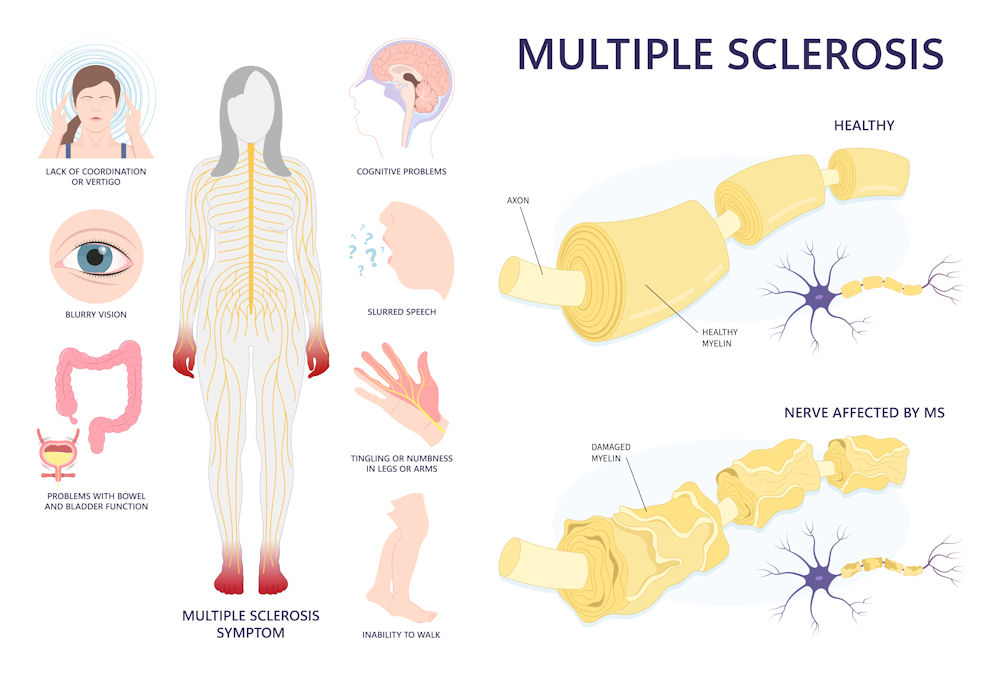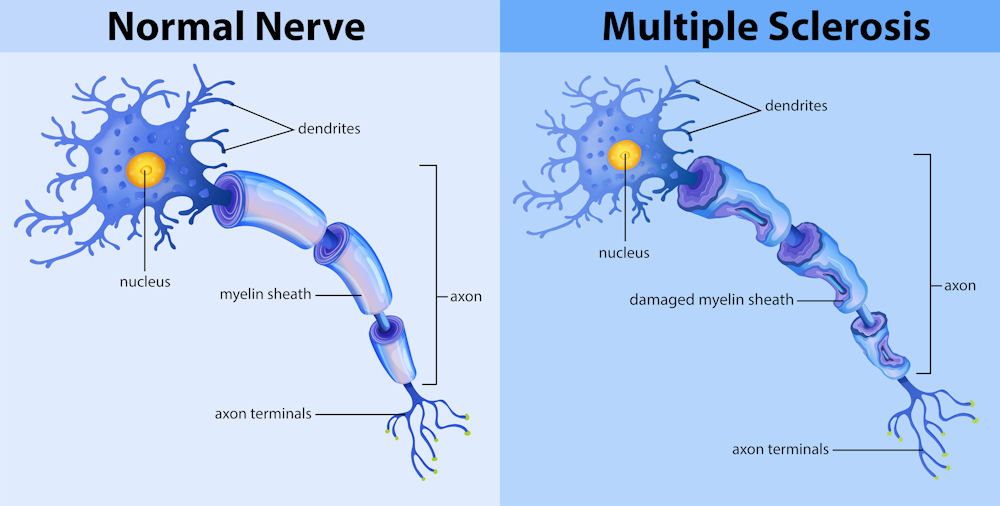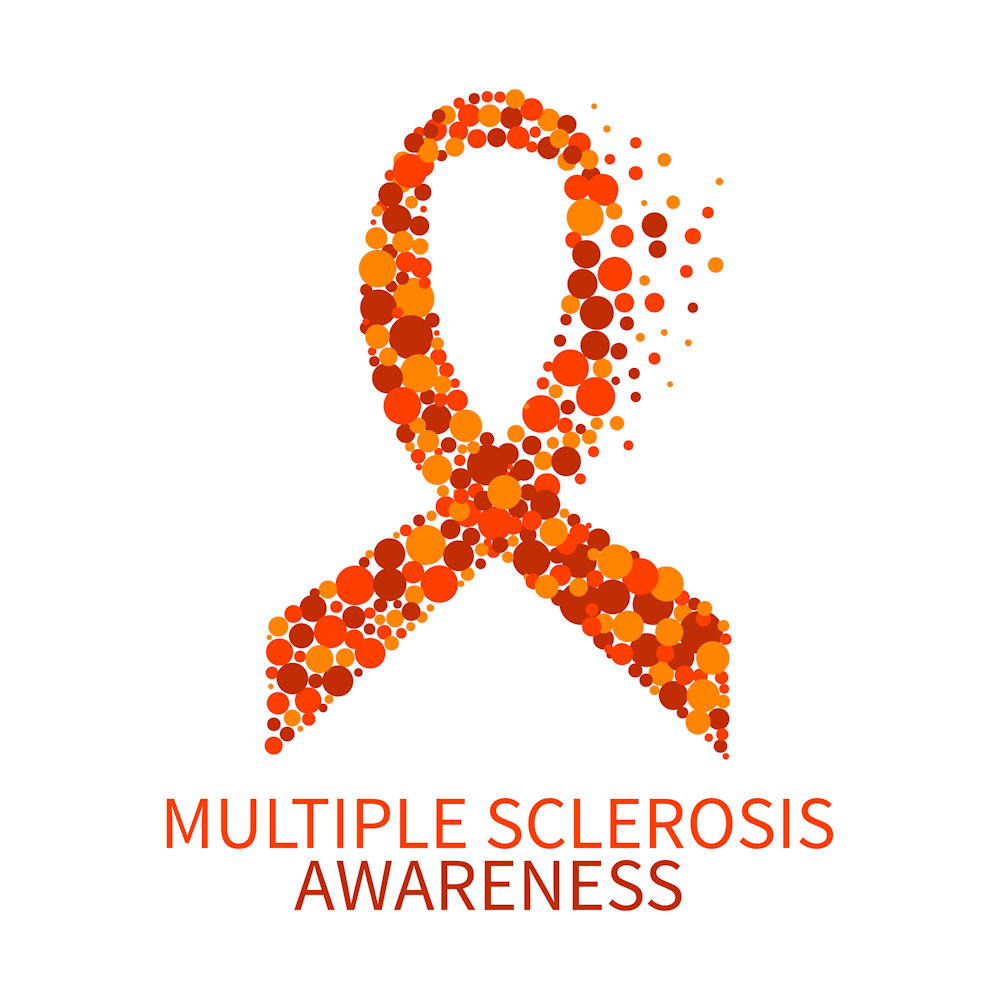April marks Multiple Sclerosis (MS) Awareness Week—a time to shine a light on the often misunderstood condition of MS and to spread awareness about factors that may influence its development and progression. One of the growing concerns in public health is the role of substance abuse, especially alcohol and illicit drugs, and its potential connection to neurological diseases such as multiple sclerosis.
While there is no confirmed, direct cause-and-effect relationship between drug abuse and the onset of MS, emerging research and clinical experiences suggest that substance abuse can influence the course of the disease, exacerbate symptoms, and complicate management. This article explores how alcohol and MS interact, including the role of drug abuse, the associated risks, and what individuals living with MS need to know to protect their health.
What is Multiple Sclerosis (MS)?
Multiple sclerosis is a chronic autoimmune disorder that affects the central nervous system (CNS)—the brain and spinal cord. In people with MS, the immune system mistakenly attacks the protective covering of nerve fibers, known as myelin, causing communication problems between the brain and the rest of the body. Over time, this can result in permanent nerve damage and deterioration of bodily functions.
MS can manifest in a variety of symptoms, including:
- Fatigue
- Vision problems
- Muscle weakness
- Coordination and balance issues
- Numbness or tingling
- Memory and cognitive difficulties
MS is unpredictable. It can progress differently for every person, making management and treatment highly individualized. Most experts agree that a combination of genetic predisposition and environmental factors (such as infections, smoking, and low vitamin D levels) triggers MS. Substances like alcohol and drugs are still being studied but are increasingly relevant, especially as these substances affect immune function and the nervous system.
The Connection Between Alcohol and MS
Alcohol is a known central nervous system depressant that alters the way your brain communicates with the rest of your body. Because MS is a disease that disrupts these same communication pathways, it’s important to understand how alcohol might impact someone with MS, or possibly even influence the risk of developing the disease in the first place.
Interaction Between Alcohol and Multiple Sclerosis (MS)
One of the most pressing questions is whether alcohol can directly cause MS. So far, research does not support the idea that drinking alcohol causes MS. However, studies suggest that alcohol can influence how the disease behaves once it has developed. MS affects the immune system, and alcohol is known to suppress immune function. While this might sound helpful, MS is an autoimmune condition that can worsen symptoms or increase the risk of infections and other complications.
Moreover, alcohol damages organs like the liver, which is essential for metabolizing medications. MS patients often rely on long-term pharmacological treatments, so a compromised liver can interfere with drug metabolism and efficacy.
Alcohol can also increase the risk of other diseases, such as heart disease, cancer, and diabetes, all of which complicate MS management. In addition, excessive alcohol use can affect mental health, potentially worsening depression and anxiety, common comorbid conditions for people with MS.
Does Drinking Alcohol Make MS Worse?
For some, alcohol may appear to reduce stress or dull discomfort, but these short-term effects can be misleading. Alcohol can increase fatigue, worsen coordination, and impair judgment—symptoms that are already present in many people with MS. This means even small amounts of alcohol might amplify existing MS symptoms.
Furthermore, alcohol is a diuretic, which increases the need to urinate. Since bladder dysfunction is already a common MS symptom, drinking can add unnecessary discomfort and inconvenience.
How Much Is Safe to Drink With MS?
There’s no universal answer. While moderate alcohol use (e.g., one drink per day for women and two for men) may be safe for some people with MS, it’s best to consult a healthcare provider. The key factors include:
- The individual’s MS subtype and progression
- The medications being taken
- Any existing comorbid conditions
- The person’s tolerance and past alcohol use history
Erring on the side of caution is advised. For those with progressive forms of MS or those on medications that interact with alcohol, abstaining may be the safest choice.
Alcohol’s Effect on MS Symptoms
So, how do alcohol and MS symptoms overlap? Many of the neurological effects of alcohol mirror or worsen MS symptoms. For example:
- Balance and coordination issues are common in MS and can be exacerbated by alcohol’s sedative properties.
- Fatigue is a hallmark MS symptom, and alcohol is known to disrupt sleep patterns and increase tiredness.
- Cognitive dysfunction, such as trouble concentrating or memory lapses, can be worsened by alcohol’s impact on the brain.
- Mood disorders, particularly depression and anxiety, are common in MS and may be intensified by alcohol use.
These overlaps can make it difficult to differentiate whether a symptom flare is due to disease progression or alcohol consumption.

Alcohol and MS Comorbidities
Living with MS is complex enough, but many individuals also face comorbidities—additional health issues that co-exist with a primary disease. Common MS comorbidities include:

- Heart disease – MS and alcohol can strain the cardiovascular system, increasing the risk of heart-related complications.
- Diabetes – Alcohol affects blood sugar regulation, and MS medications may also influence glucose levels, raising diabetes risk.
- Depression and anxiety – These are common in MS and can be intensified by alcohol’s effect on mood and brain chemistry.
- Liver disease – Excessive alcohol intake harms the liver, which is crucial for metabolizing MS medications.
- High blood pressure – Alcohol raises blood pressure, complicating MS management and increasing the risk of stroke or heart attack.
Alcohol abuse can increase the risk of developing these conditions. For example, regular alcohol consumption raises blood pressure and blood sugar levels, contributing to cardiovascular disease and diabetes. It also affects brain health and emotional regulation, compounding issues like depression.
Managing MS successfully requires addressing all aspects of health. Alcohol use may undermine these efforts by making it harder to maintain a balanced, healthy lifestyle.
Can Drug Abuse Cause Multiple Sclerosis?
Unlike alcohol, which has been moderately studied in relation to MS, the connection between illicit drug abuse and MS is still being researched. Currently, no scientific consensus confirms that drug abuse directly causes MS. However, certain drugs have neurotoxic effects that may mimic or worsen MS symptoms.

Drugs like crystal meth, cocaine, opioids, and even long-term use of some prescription drugs can cause brain inflammation, demyelination, or vascular damage—all of which are mechanisms involved in MS. Some case studies and observational research suggest that heavy drug use might act as a trigger in genetically predisposed individuals.
Additionally, drug abuse affects immune function, increases the risk of infections, and often leads to neglect of health care—all significant concerns for someone at risk of MS or already diagnosed. While we can’t definitively say that drug abuse causes MS, we can say it increases the risks of complications, symptom worsening, and diagnostic confusion.

Treatment for Alcohol Addiction
For those struggling with alcohol abuse—whether or not they have MS—treatment is essential. Options include:
- Medical Detox
- Residential treatment
- Outpatient treatment
- Cognitive behavioral therapy (CBT)
- Support groups, such as Alcoholics Anonymous (AA)
- Holistic therapy
For people with MS, treating alcohol addiction becomes more complex due to the need to manage both neurological and psychological symptoms. That’s why a comprehensive care program—one that involves neurologists, addiction specialists, therapists, and support networks—is vital.
Recommendations for Someone Struggling: Alternatives to Alcohol for Those With MS
If you’re living with MS and trying to cut down or quit drinking, here are some healthy and enjoyable alternatives:
Swap alcohol for calming herbal teas or sparkling water with fruit infusions. They’re refreshing, hydrating, and perfect for social settings without the side effects.
Simple practices like deep breathing or guided meditation can reduce stress and help manage emotional triggers, common reasons people turn to alcohol.
Activities like painting, music, or journaling provide a positive outlet for emotions and help distract from cravings while boosting mental well-being.
Gentle exercises such as yoga, stretching, or swimming support physical health, relieve fatigue, and release feel-good endorphins.
Connecting with others through MS-specific support groups can reduce isolation, offer encouragement, and help you stay motivated on your journey.
The goal isn’t just to eliminate alcohol—it’s to replace it with healthier coping strategies that support your body and mind.
Find Substance Abuse Treatment in New Jersey
If you or someone you know is dealing with substance abuse and MS, professional help is available. At Discovery Institute in Marlboro, New Jersey, we understand how complex and personal the journey to recovery can be—especially for those facing additional challenges from chronic illnesses like MS. Our experienced and compassionate team is here to walk with you every step of the way, providing tools and resources to build a healthier, more fulfilling future.
If you’re ready to take the first step toward recovery or want more information about how our programs can support you or your loved one, contact us today. Let us help you find hope, healing, and a new path forward.
Provide the highest quality clinical care through evidence-based treatment practices and innovative supportive strategies to improve and heal the lives of individuals suffering from substance use disorder. It’s our goal to lessen the adverse impact on families and society as a whole through providing a range of cutting-edge treatment modalities and individualized treatment plans for all of our clients and their families.



